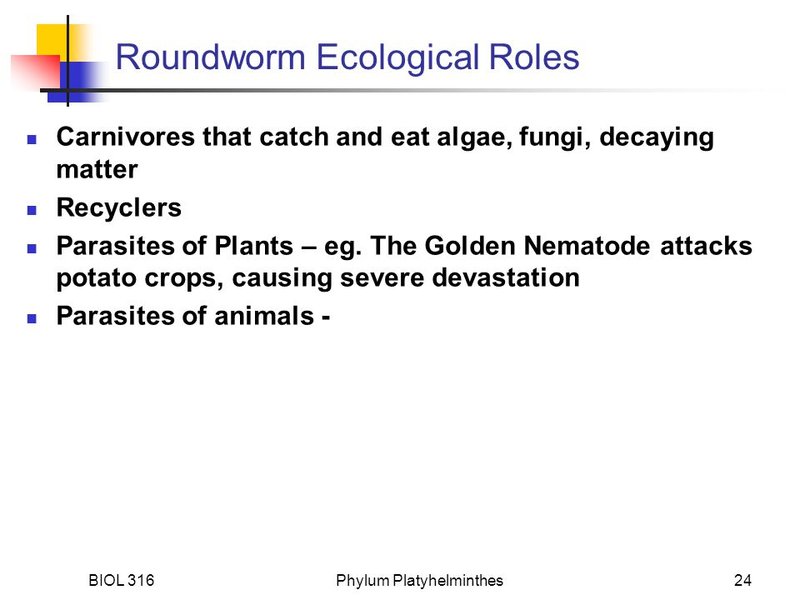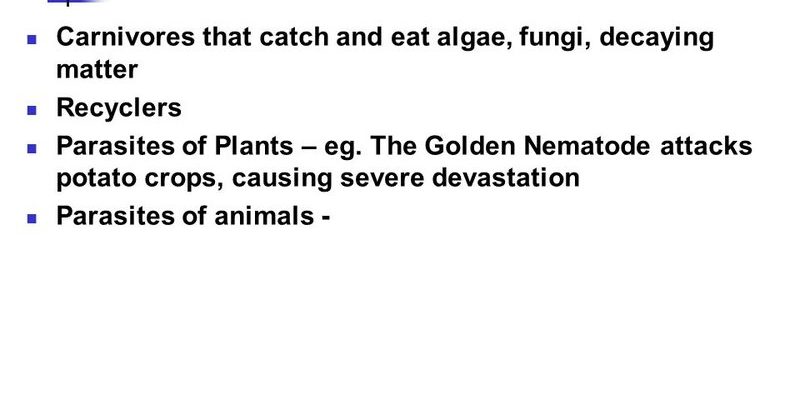
So, why should we care about roundworm populations? Picture a bustling city. Every resident contributes to the community—some by building, some by cleaning, and others by just existing. Roundworms fit into our ecological city as decomposers and predators, cycling nutrients and controlling pest populations. But, like any community member, they can sometimes cause issues, like being involved in the spread of disease or disrupting local ecosystems. Let’s dive deeper into the complex world of roundworms and explore their ecological benefits and drawbacks.
Understanding Roundworms: A Brief Overview
Roundworms are incredibly diverse, with thousands of species inhabiting various environments, from the ocean floor to forest soil. They’re often microscopic, with most species measuring just a few millimeters in length. Some might even live in extreme conditions, proving their adaptability.
These little creatures are primarily known as decomposers, breaking down organic matter and recycling nutrients back into the soil. Think of them as nature’s recyclers. By doing this, they help promote healthy plant growth, which is crucial for many ecosystems.
You might be wondering how they contribute so significantly to soil health. Well, as they break down dead plants and animals, they release vital nutrients like nitrogen and phosphorus, which plants need to thrive. So, in a way, roundworms are like gardeners, working tirelessly to keep the ecosystem lush and productive.
The Benefits of Roundworm Populations
Nutrient Cycling
One of the most significant benefits of roundworms is their role in nutrient cycling. When they consume decomposing material, they help break it down into simpler forms that plants can absorb. This process enriches the soil, making it more fertile and capable of supporting diverse plant life. Without roundworms, the decomposition process would slow down, leading to nutrient depletion and poor soil health.
Soil Aeration
Roundworms also contribute to soil aeration. As they move through the soil, they create tiny channels, allowing air and water to penetrate deeper layers. This aeration is critical for root systems, enabling them to access the oxygen and moisture they need to grow strong and healthy.
Pest Control
Interestingly, some roundworms serve as natural pest controllers. Certain species are predators of harmful insects, like larvae and pests that threaten crops. By keeping these populations in check, roundworms can help farmers reduce their reliance on chemical pesticides, promoting healthier agricultural practices.
Drawbacks of Roundworm Populations
Pathogen Spread
Despite their many benefits, roundworms are not without their drawbacks. Some roundworm species can act as vectors for disease. They can carry pathogens that affect animals, crops, and sometimes even humans. This is particularly concerning in agricultural settings, where a roundworm infestation can lead to significant crop loss or health issues in livestock.
Invasive Species
Another potential downside is that some roundworm species can become invasive in new environments. When introduced to ecosystems where they don’t belong, invasive roundworms can disrupt local food chains, outcompeting native species and negatively impacting biodiversity. This can lead to imbalances that may take years to rectify.
Impact on Soil Structure
An overpopulation of roundworms can also negatively affect soil structure. While they play a role in aeration, too many can lead to soil compaction. This impairs water retention and root growth, ultimately harming plant health. Finding a balance in roundworm populations is essential for maintaining optimal soil conditions.
Roundworms in Agriculture: Balancing Benefits and Drawbacks
In agricultural settings, roundworms can be both allies and foes. On the one hand, their ability to enhance soil fertility and control pests is invaluable. Many farmers actively encourage healthy roundworm populations in their fields as part of sustainable farming practices.
However, the risks associated with disease spread mean farmers must monitor roundworm populations closely. Regular soil testing and crop rotation can help manage these issues. By understanding which species are present, farmers can make informed decisions on how to maintain a healthy balance.
Integrated Pest Management (IPM)
Many farmers adopt Integrated Pest Management (IPM) strategies to leverage the benefits of roundworms while mitigating their drawbacks. This approach combines biological control (using natural predators) with mechanical and chemical methods to manage pest populations sustainably.
Through careful planning and observation, farmers can create a harmonious relationship with roundworm populations, maximizing their ecological benefits while minimizing potential risks.
The Role of Roundworms in Ecosystem Health
Roundworms play a vital role in maintaining ecosystem health. Their interactions with plants, other organisms, and the soil environment create a web of life that supports biodiversity. The presence of diverse roundworm populations can indicate a healthy ecosystem, as they are sensitive to changes in their environment.
Indicator Species
Roundworms can act as indicator species, helping scientists monitor ecosystem health. By studying their populations, researchers can gain insights into soil quality and the overall state of the environment. A thriving roundworm population often signals that the ecosystem is balanced and healthy.
Restoration Ecology
In restoration ecology, roundworms are considered during habitat restoration projects. Understanding their roles can help ecologists develop strategies to rebuild degraded ecosystems. For instance, when reintroducing plants to a disturbed area, ensuring a healthy roundworm population can boost the chances of success.
In summary, roundworms are essential players in the ecological narrative. They bring numerous benefits, including nutrient cycling, soil aeration, and natural pest control. However, their potential to spread disease and disrupt ecosystems reminds us that nature is a complex web of interconnections.
To truly appreciate roundworms, we must recognize their dual nature. By understanding their ecological benefits and drawbacks, we can better appreciate these tiny creatures and work towards fostering balanced ecosystems. Whether in agriculture, natural habitats, or scientific research, finding harmony with roundworm populations is key to maintaining healthy environments for generations to come.

